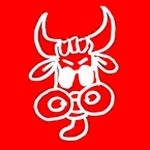

| 30-10-2023 (936 ) | Categoria: Articles |
Idea Popular de la Guinea Équatorial (IPGE) was a nationalist and pro-independence political group in Equatorial Guinea, which emerged in the late 1950s.
Its two fundamental characteristics were its left-wing ideology and its determination to unite or federate Equatorial Guinea and Cameroon after independence. This commitment to annexation with Cameroon, announced and defended by Maho at an international conference in Ouagadougou (Upper Volta), and contemplated in Article 3 of its statutes, deprived the IPGE of support within Guinea, until it was suppressed at the Ebolowa meeting in March 1962, at the proposal of Agust├şn E├▒eso and Esteban Nsue Ngomo.
Emerging from a split from the National Movement for the Liberation of Equatorial Guinea (MONALIGE), it was formally constituted between 1958 and 1959 by Equatorial Guinean exiles in Cameroon, constituting an interethnic project; its executive was made up of the bubis Marcos Ropo Uri and Luis Maho Sicah├í, the fernandino Gustavo Watson Bueco and the fangs Enrique Nvo, Pedro Ekong Andeme, Clemente Ateba or Jos├ę Nsue Ang├╝e, among others.
Following Spain's approval of a decree on 10 January 1958 by which the Spanish-Guinean territories became Spanish provinces, the IPGE convened a meeting in Santiago de Baney which was attended, among others, by Felipe Ndjoli, Alberto Mbande, Federico Ebuka and Pastor Tora├│, agreeing on a plan of opposition to the Spanish colonial administration that included sending a letter to the United Nations denouncing the provincialization of the country and demanding independence. The work of getting it to the UN was entrusted to Enrique Nvo, with the plan that he would travel to Cameroon and use his contacts with the local independence movement, and the international contacts of the latter for this purpose. Nvo reached his village, Mb├ę, in the district of Micomeseng, where he crossed the Ntem River on the border with the French colony. From there it disappeared. Finally, in July of the same year, the IPGE managed to submit a formal request for independence to the UN.
However, Luis Maho, who would replace Enrique Nvo in the presidency of the party, accepted positions in the colonial autonomous government constituted by Bonifacio Ond├│ Edu in 1964; other prominent militants would go over to the National Unity Movement of Equatorial Guinea (MUNGE), led by Bonifacio Ond├│.
In November 1965, the Fourth Committee of the UN General Assembly adopted a draft resolution calling on Spain to set a date for the independence of Spanish Guinea as soon as possible. In December 1966 the Spanish Council of Ministers agreed to prepare for the Constitutional Conference. Several representatives of the party participated in the Constitutional Conference (1967-1968), which drafted the 1968 Constitution, including Antonio Eworo, Mart├şn Mbo Mguema and Jovino Edu Mbuy.
In the 1968 general elections in Equatorial Guinea prior to the country's independence, IPGE ran with Francisco Mac├şas as leader, obtaining 36,176 votes (39.6%) in the first round, and in the second, with the support of the Uni├│n Bubi party and MONALIGE, 68,310 votes (62.3%), obtaining 8 deputies in the National Assembly provided for by the 1968 Constitution. Subsequently, under the Mac├şas dictatorship, the party was dissolved and outlawed.
Afegeix-hi un comentari: